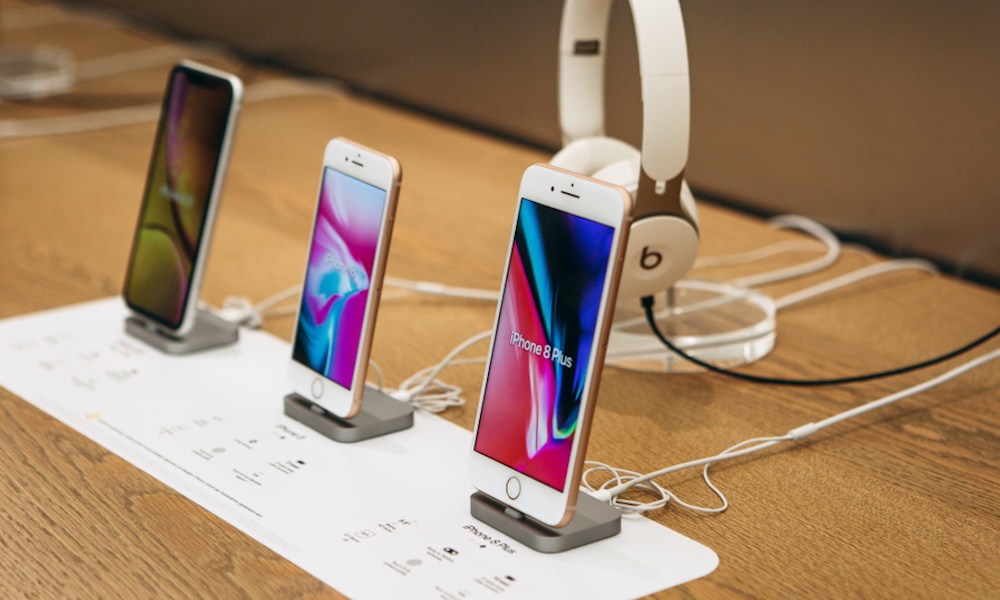Brazilian Court Says Apple Did Nothing Wrong in Slowing Down Older iPhones
 Credit: Franz12 / Shutterstock
Credit: Franz12 / ShutterstockToggle Dark Mode
After Apple was found to be slowing down older iPhones with deteriorating batteries two years ago, most governments and U.S. courts have generally come down on the side of consumers, deciding that in the very least Apple wasn’t transparent enough in its choice to throttle performance, even if its reasons for doing so were justified.
However, a court in Brazil seems to be swimming against this tide, not only exonerating Apple but actually agreeing with and defending the company’s stance that it this was ultimately a move to help consumers rather than the ploy to sell more iPhones that some have claimed.
When the ”batterygate” scandal surfaced back in early 2018, accusing Apple of “secretly” slowing down older iPhones, Apple admitted that it had in fact started doing this following the release of iOS 10.2.1 in early 2017, but that it had made the decision with only the best intentions — to improve the user experience by preventing older iPhones from unexpectedly shutting down as the batteries in them aged. This was, the company insisted, a necessary tradeoff between performance and stability.
Of course, in the litigious society that we live in today, the decision resulted in a massive number of class-action lawsuits that took the stance that Apple had been doing this instead to force people to buy new iPhones as they became frustrated with their older iPhones slowing down — cases which seemed to miss the logic that customers who are frustrated with their current iPhone aren’t going to have a warm feeling about upgrading to a newer iPhone, and could just as easily switch to a competing platform like Android.
In the end, the class action lawsuits were all merged into one big lawsuit, which Apple recently agreed to settle for up to $500 million — or $25 per affected iPhone user — but also denied all wrongdoing as a condition of the settlement.
While Apple has also been hit with fines in Italy and France under the consumer protection laws of those countries, these were levied specifically for Apple’s lack of transparency in not telling consumers about the new behaviour, which is something that Apple CEO Tim Cook had already candidly admitted to and apologized for, since the possibility did exist that some users had been frustrated by performance slowdowns, and possibly even purchased a whole new iPhone, when a simple battery replacement would have solved the problem.
Brazil’s Response
It seems that Brazil isn’t even willing to go that far, however, with a Brazilian judge fully agreeing with Apple’s reasoning for slowing down older iPhones and defending its decision to do so.
According to Brazilian publications Tecnoblog and Tilt (via 9to5Mac), the Brazilian Institute for Consumer Protection (IDEC) received about 350 reports from consumers complaining about the performance of their iPhones, however the National Consumer Secretariat of the Ministry of Justice closed the investigation based on a lack of evidence and the belief that Apple had already taken appropriate action to rectify the solution by acknowledging what it was doing and offering discounted battery replacements.
However, this didn’t stop the Brazilian Institute of Information Technology Policy and Law (IBDI) from bringing its own case against Apple, demanding that it pay R$986M (~$212 million) in “moral damages,” however the courts denied that lawsuit, with Brazilian judge João Egmont stating that “there was no planned obsolescence by Apple,” and defending the company by agreeing with its statement that this was done solely to preserve the user experience for those with older iPhones.
Judge Egmont also ruled that Apple had complied with Brazil’s Consumer Protection Code by offering replacement parts at a lower cost. The magistrate stated his belief that Brazilian consumers were opting for new iPhones “because they have more benefits” and not simply “because old devices had problems.”
As 9to5Mac points out, it’s worth noting that the Brazilian government does have some skin in this game, since there’s a Foxconn plan in Brazil that manufactures some iPhone models, but from reading the reports it seems that Brazilian politics in this area are a bit more complicated, and the country doesn’t have the same consumer protection laws that are much more common in Europe.






